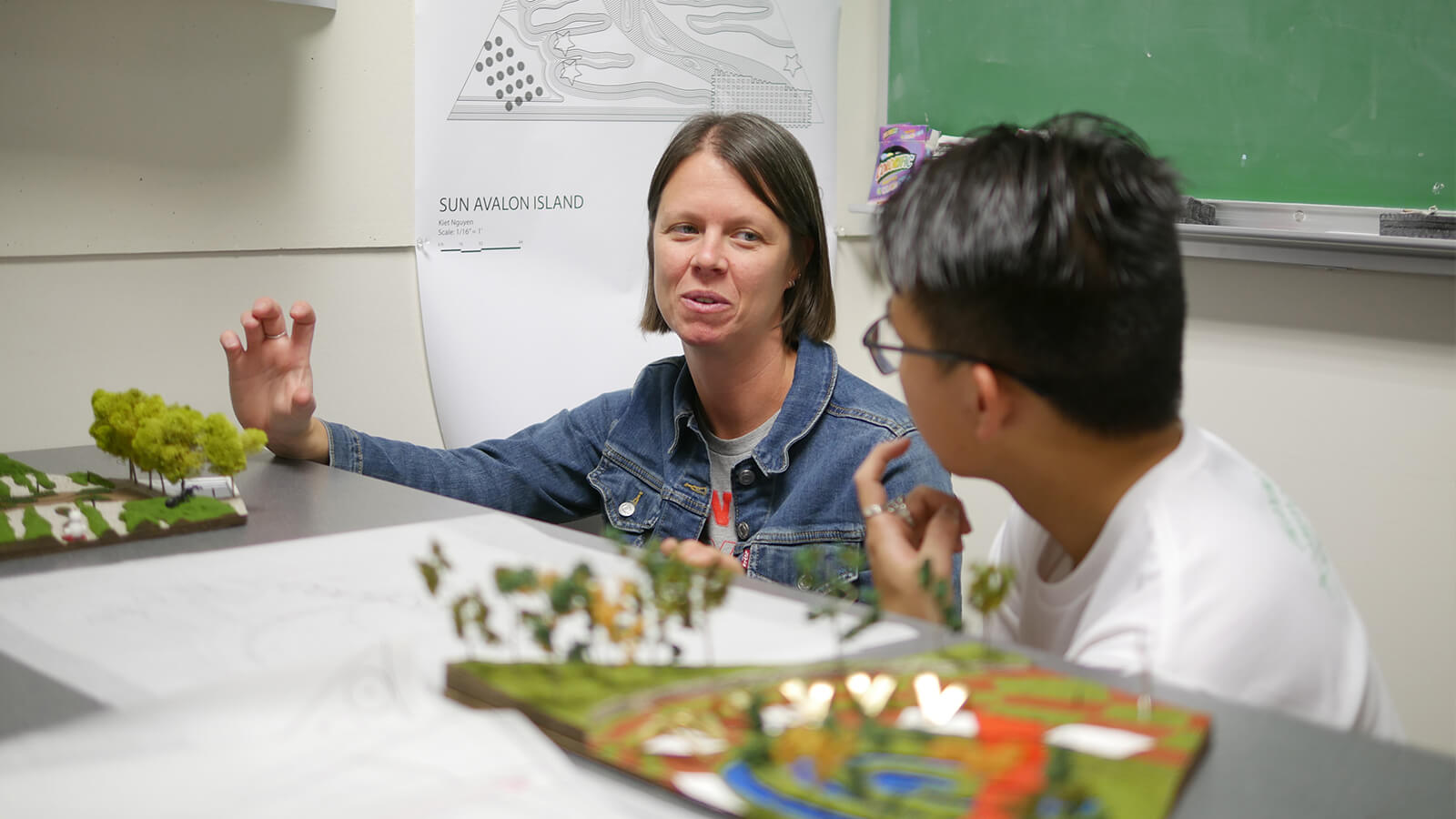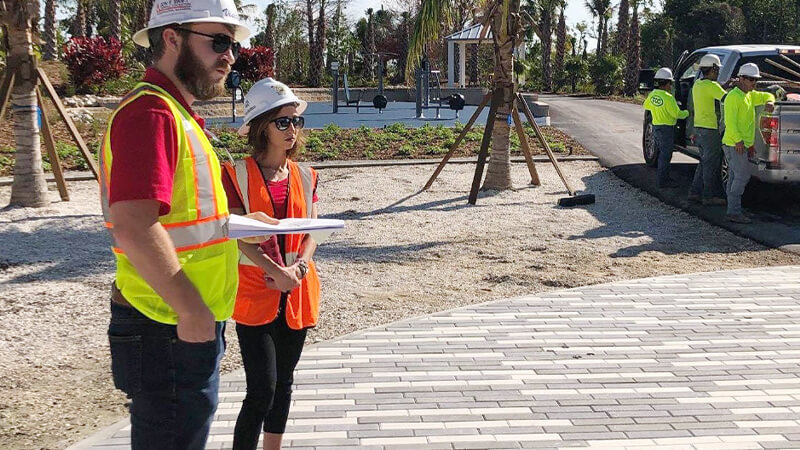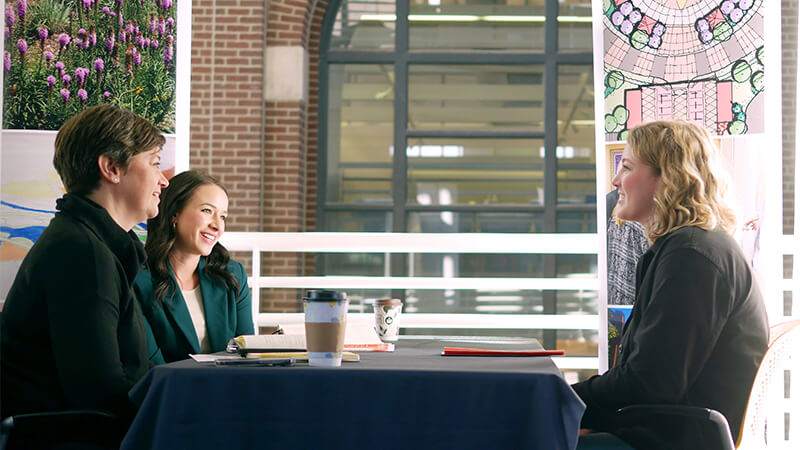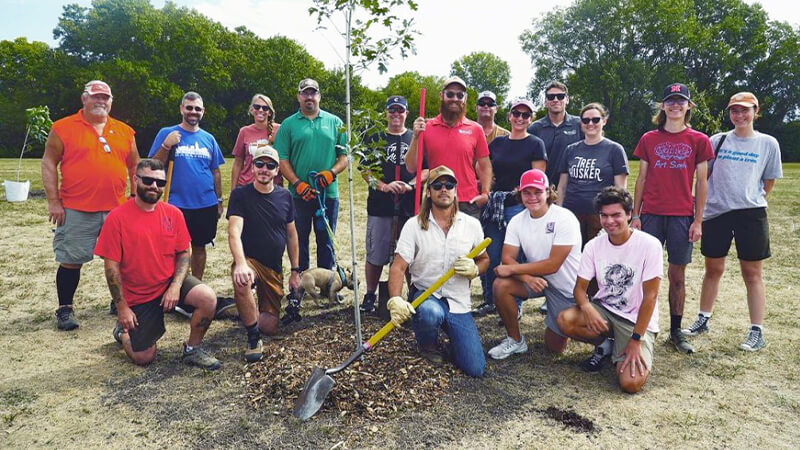Landscape Architecture

-
College
-
Hours Required
120 credit hours -
Minors Available
The Nebraska Difference
Only LAAB-accredited program in Nebraska
90% of students graduate in four years
100% job placement rate

Program Features
Cross-disciplinary Studios
Throughout the program, you’ll engage in project-based experiential learning in design studios, which culminates in the fourth year of ‘collaborate’ and ‘integrate’ design studios. In studio, designers express and explore ideas, generate and evaluate alternatives and ultimately make decisions and take action. You don’t have to wait to make a difference.
Undergraduate Research
Every person and every interaction matters. Our program is designed to foster leaders and innovators. We pair your interests and goals with engaging, faculty-led undergraduate research projects, such as assisting parks with master planning, working with sites on lead pollution mapping and digitizing records for a geo-referenced database.
Collaborative Curriculum
We grow flexible, nimble and strong minds. Our studios regularly travel to see firsthand outstanding examples of landscape architecture and collaborate with service groups, community parks and recreation departments on site designs, master plans and idea exploration.

Notable Courses
Design Studio I, II, III, IV (LARC 210, 211, 310, & 311)
Second and third-year design studios. Work as an individual and in teams to inventory sites, research precedents and engage in site design of meaningful environments.
Site Systems I: Materiality in Landscape Architecture (LARC 230)
The designed environment is made of tangible things that frame and describe the nature of space and place. This course explores materiality through hands-on experience.
Site Systems II: Site Engineering (LARC 231)
The aesthetics and functional requirements for manipulation of ground to execute successful water management and activity facilitation.
History of Landscape Architecture (LARC 241)
This foundational theory class introduces you to the ongoing legacy of landscape architecture and the ideas that underlay our cultural landscapes.
Design Studio: Collaborate (DSGN 410)
Collaborate with students and faculty from architecture and interior design to explore dialogue between the design disciplines in the creation of new designed environments.
Design Studio VI (LARC 411)
Advanced studio; research design issues, explore state-of the art solutions and learn how design, performance and requirements inform successful solutions in today’s world.
Huskers Do Big Things
Internships
- OLIN, Philadelphia, Pennsylvania
- Turenscape, Beijing, China
- Kimley-Horn, Fort Worth, Texas
- Parks and Recreation, Olathe, Kansas
- HOK, Kansas City, Missouri
Careers
- Clark Enersen, Lincoln, Nebraska
- Community Works Design Group, Riverside, California
- HDR, Omaha, Nebraska
- Lincoln Parks & Recreation, Lincoln, Nebraska
- OJB, Dallas, Texas
- National Park Service, Denver, Colorado
Graduate Schools
- Master of Community and Regional Planning, University of Nebraska–Lincoln
- Master of Landscape Architecture, Washington University
- Master of Urban and Regional Planning, California State Polytechnic University
- Master of Landscape Architecture, Harvard University
- Master of Landscape Architecture, UT Austin
- Master of Landscape Architecture, Harvard University
Outside the Classroom

Connect with a global network of top-firm professionals at our Career Fair to discover internships that offer you real-world challenges finding solutions for customers.

Build friendships by joining the student chapter of the American Society of Landscape Architects (ASLA). Attend events, workshops and conferences that enhance your knowledge and expertise in landscape architecture.

Immerse yourself in a culture and study landscape masterpieces firsthand. Our faculty-led education abroad programs allow you to explore outstanding examples of landscape architecture.

Work on service-learning activities with community groups and professionals when you join our Responsible Design Learning Community and student organizations, such as ASLA.
Academics & Experiential Learning
- Work on real-world, hands-on projects and build physical mock-ups of site designs.
- Help community groups and public organizations visualize potential futures.
Career Preparedness
- Develop technical skills required for the implementation of professional landscape architecture design projects.
- Hone fundamental design abilities, including research, programming and creative problem solving to land your dream job.
Community
- Engage in our first-year Responsible Design Learning Community alongside peer mentors.
- Participate in landscape architecture-specific, multidisciplinary and student organization opportunities inside and outside the college.
Have Questions? We're Here to Help
If you have questions about the Landscape Architecture major or navigating the application process, contact us.

- Contact Name
- Jaime Mastera
- Contact Title
- Advisor
- Phone
-
-